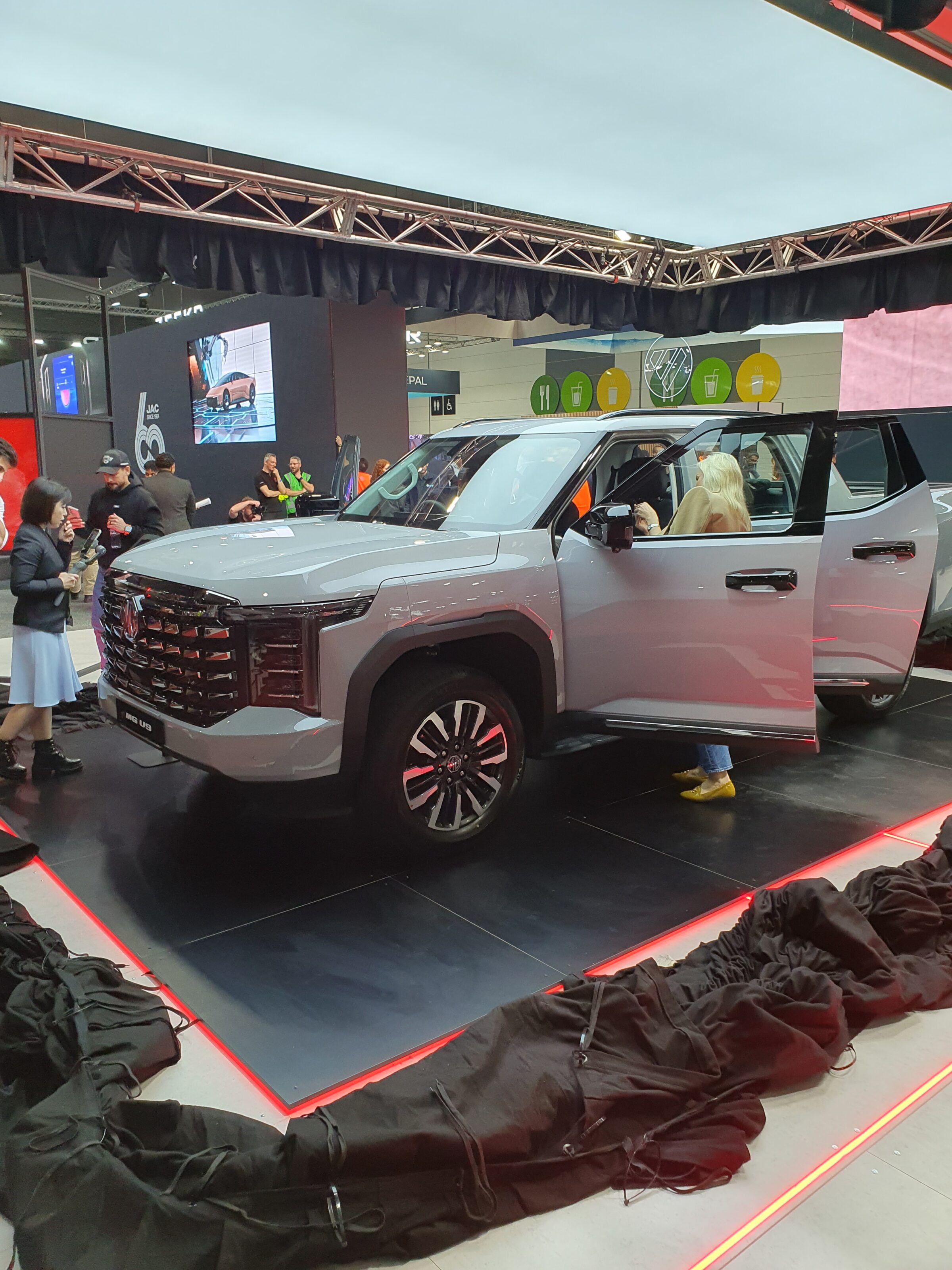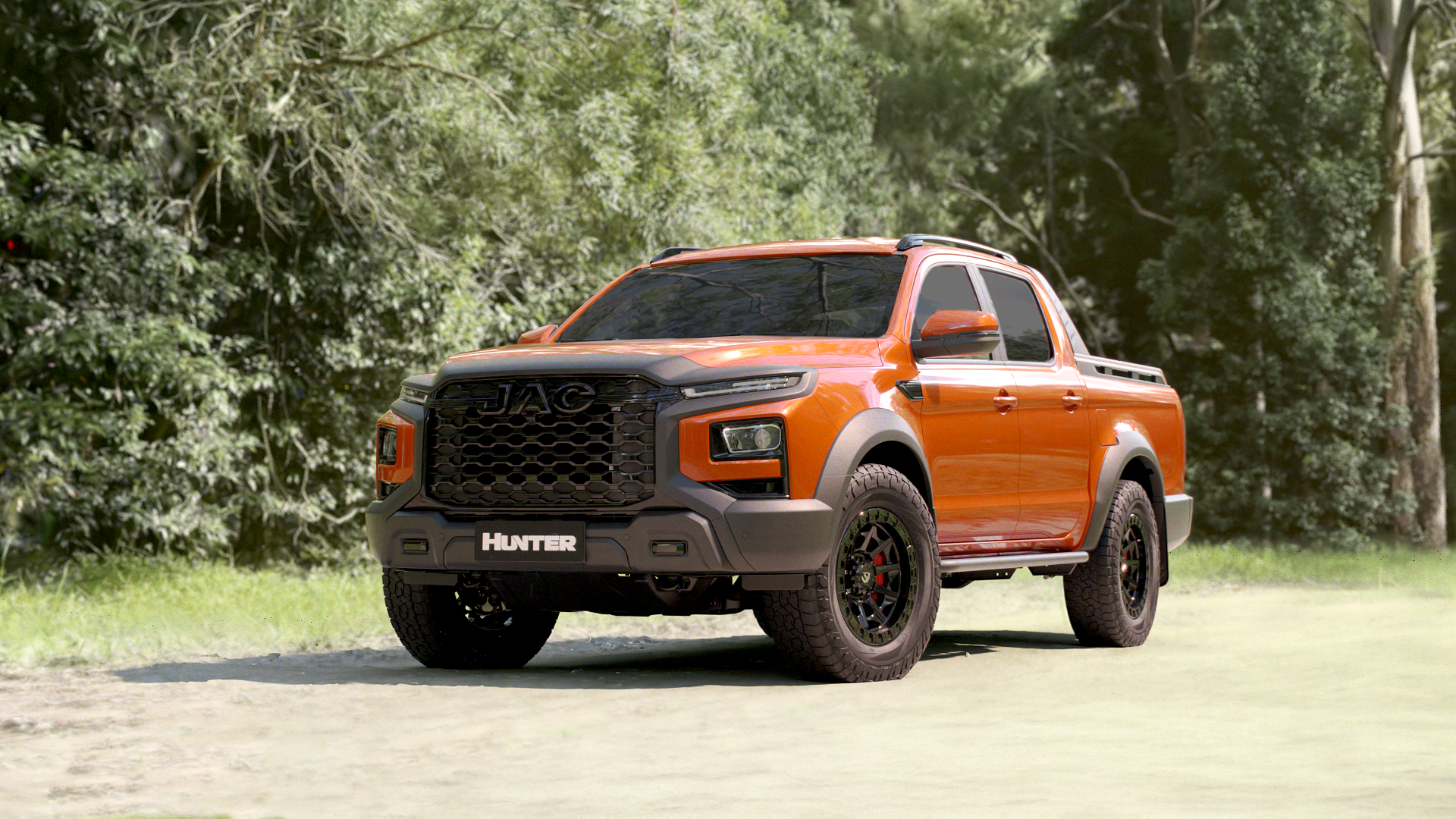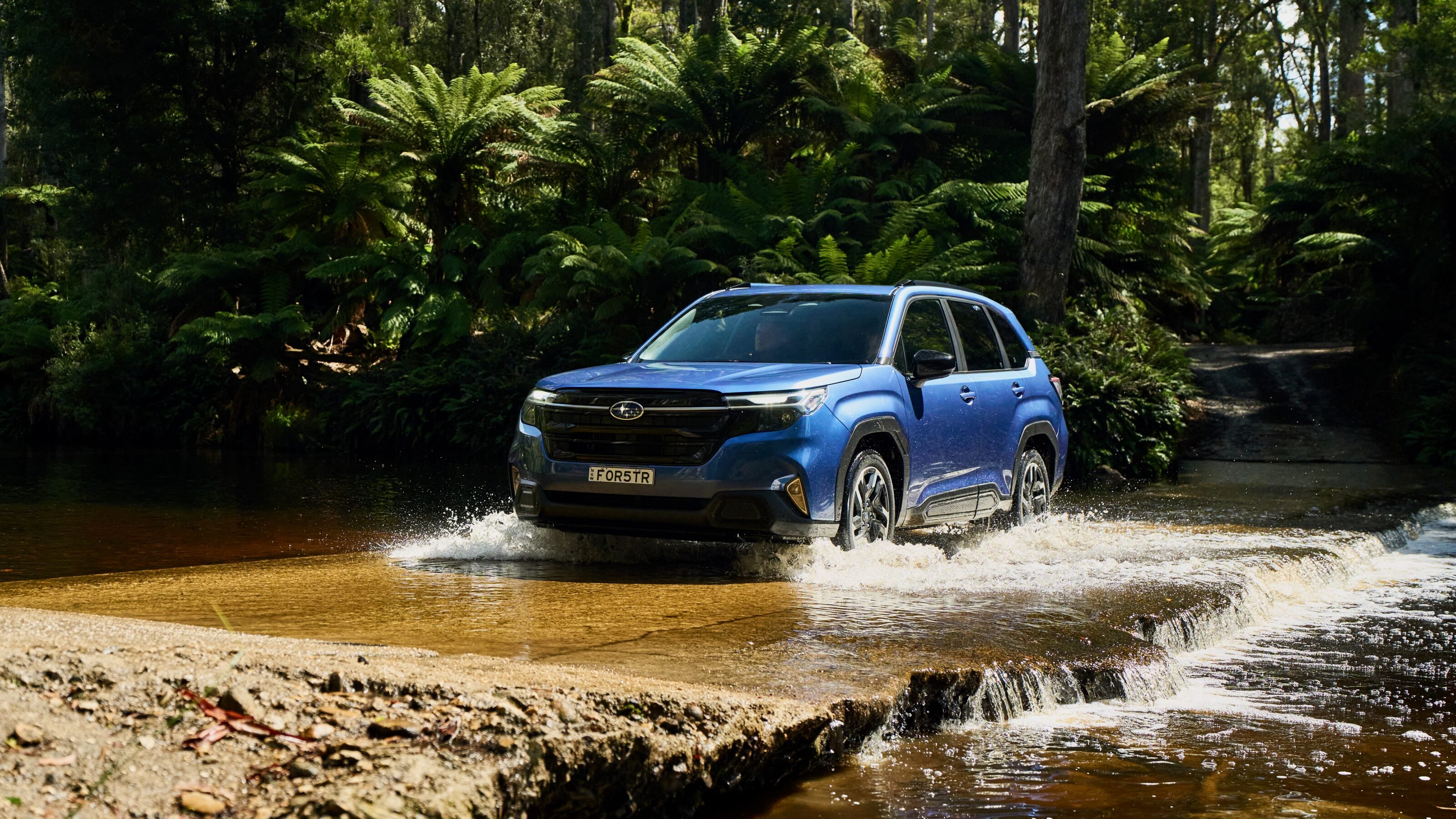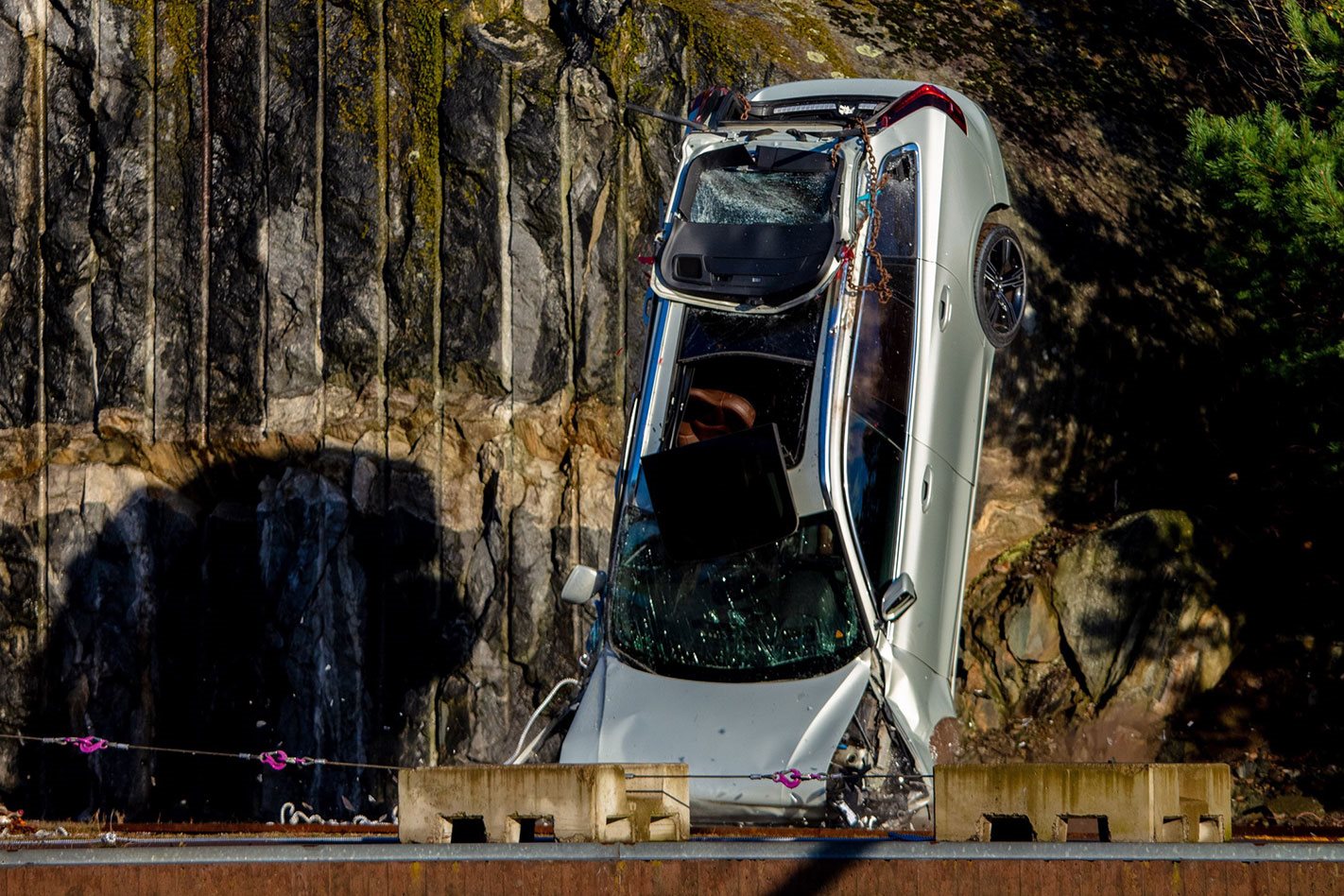
Volvo has taken crash testing to new heights to help rescue workers.
The Swedish brand has dropped 10 new cars from a 30-metre-high crane to simulate extreme car crashes, such as those at high-speed or between two differently sized vehicles, allowing rescue crews to practice extracting victims and treat them more quickly.
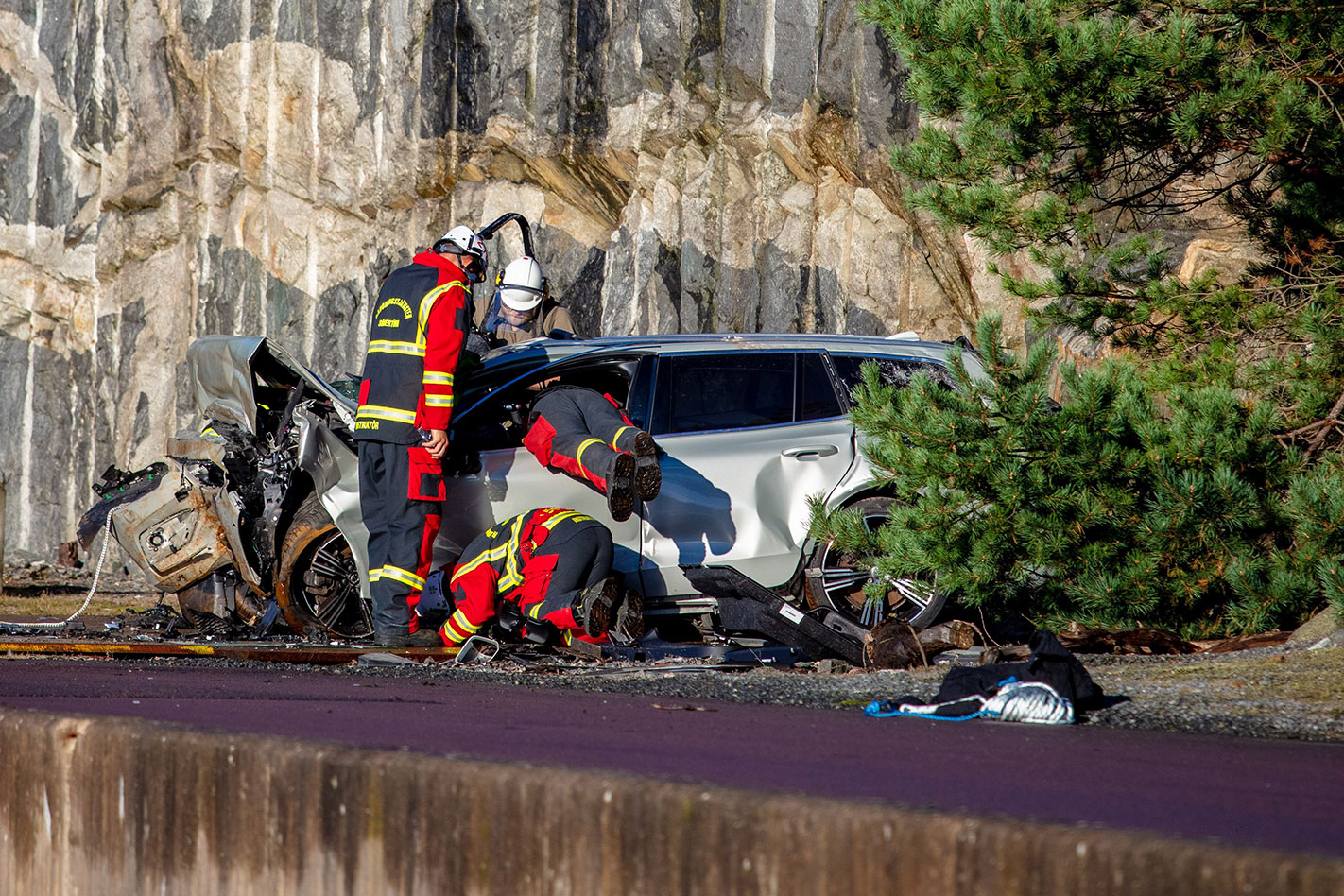
It’s been done to give Sweden’s first response teams a chance to work on new-age vehicles, like the XC40 small-SUV and V60 wagon, among others.
“The problem we have,” firefighter Jens Molin says, “is that when we do train normally, we usually get our cars from scrap yards. These cars, most of them, 10, 15 and maybe 20 years old.
“They work very differently to the cars today – regarding safety, steel [strength] and how they work when we try to open them up.”
The results, captured on video from all sorts of angles, are sobering, given the speeds they’re travelling at are commonplace in Australia.
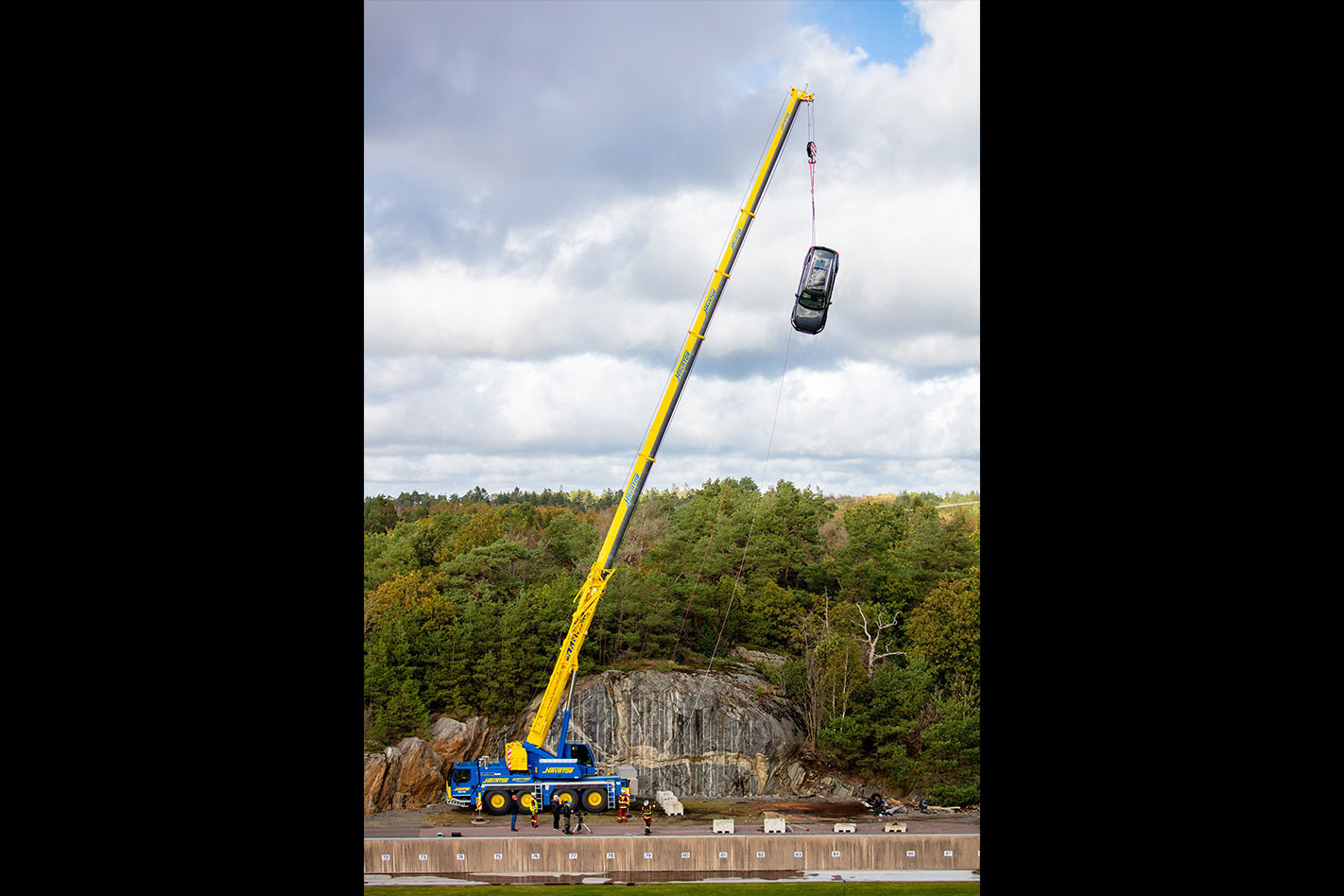
From such a height, the vehicles are doing around 70km/h when they meet the earth.
The experiment also dropped the cars on their sides to test impacts on areas without crumple zones, so rescue workers could try more crash types.
After the drops, workers on site methodically worked through extraction techniques and record hydraulic tool pressures in the aftermath, building a report on findings to give other rescue crews.
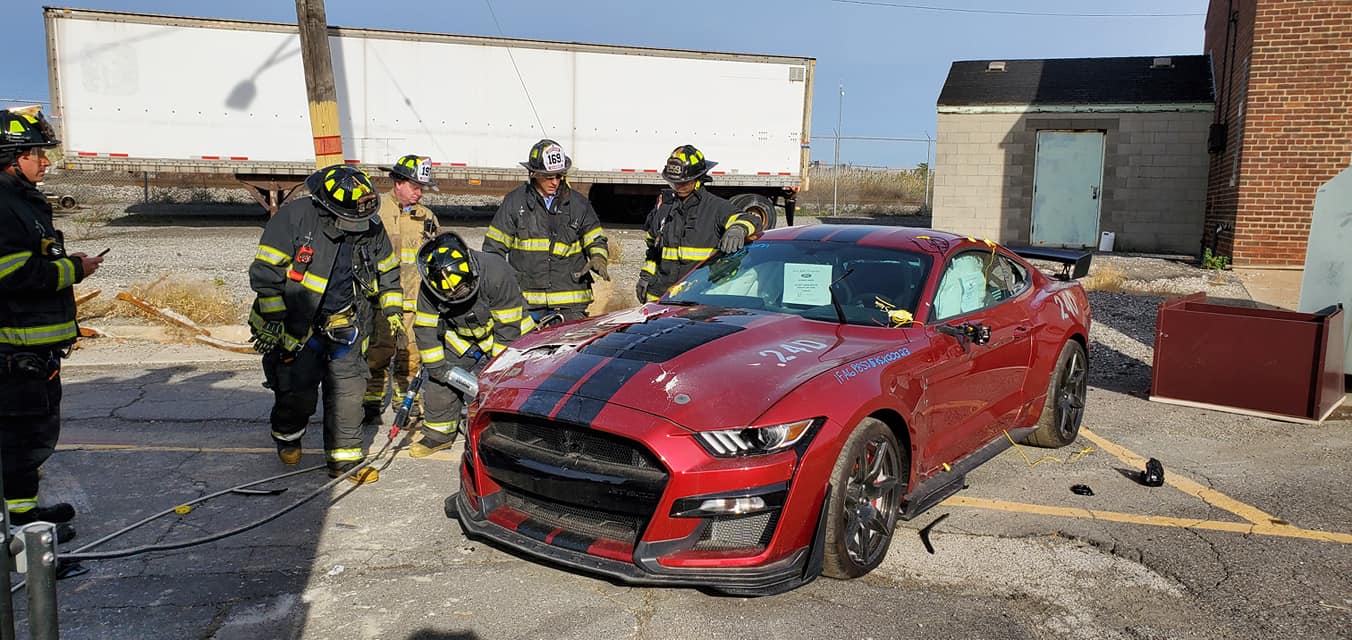
Volvo says it’s the first time it’s brought crash testing outside the lab.
But it’s not the only one sacrificing cars for the sake of safety. Ford recently donated a Mustang GT500 prototype, carbon fibre wheels and all, to the Dearborn Fire department to cut apart for research.


